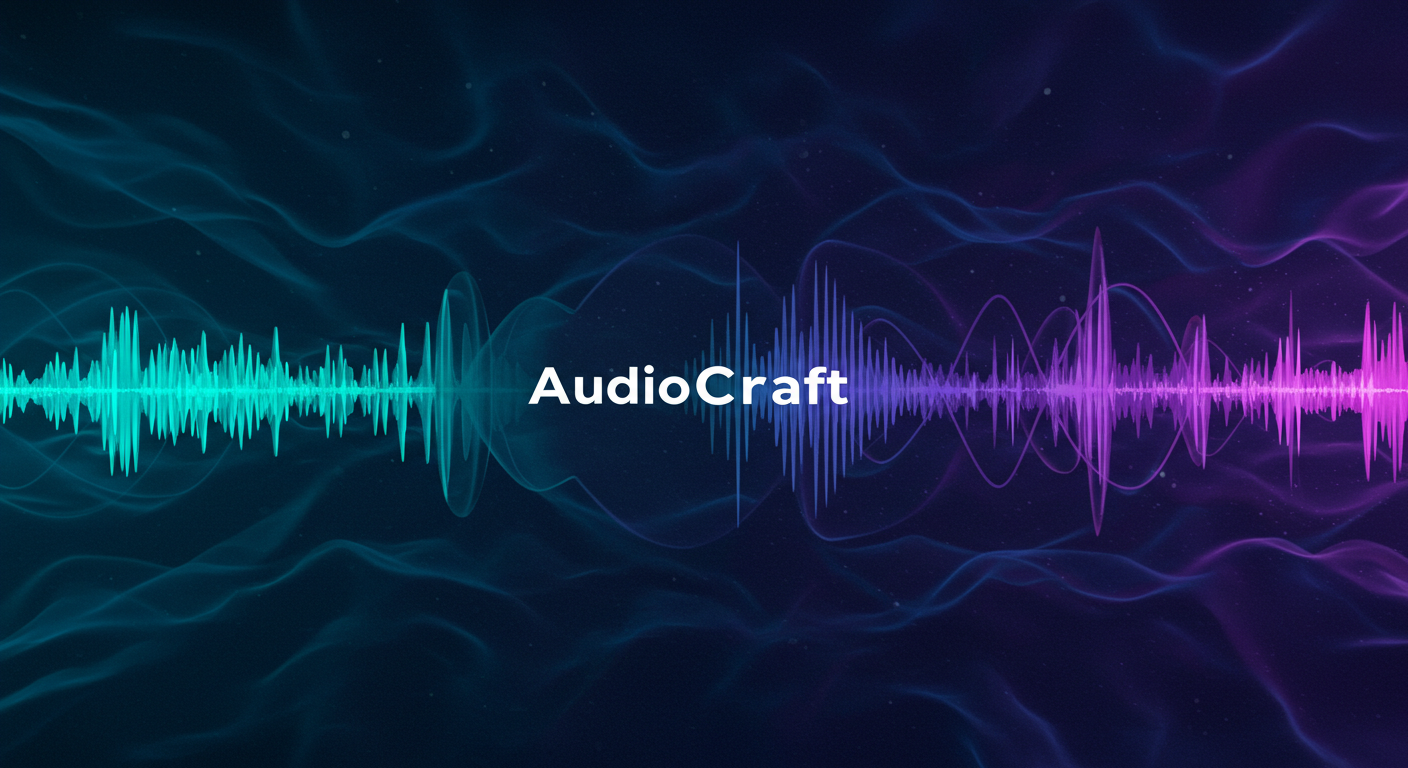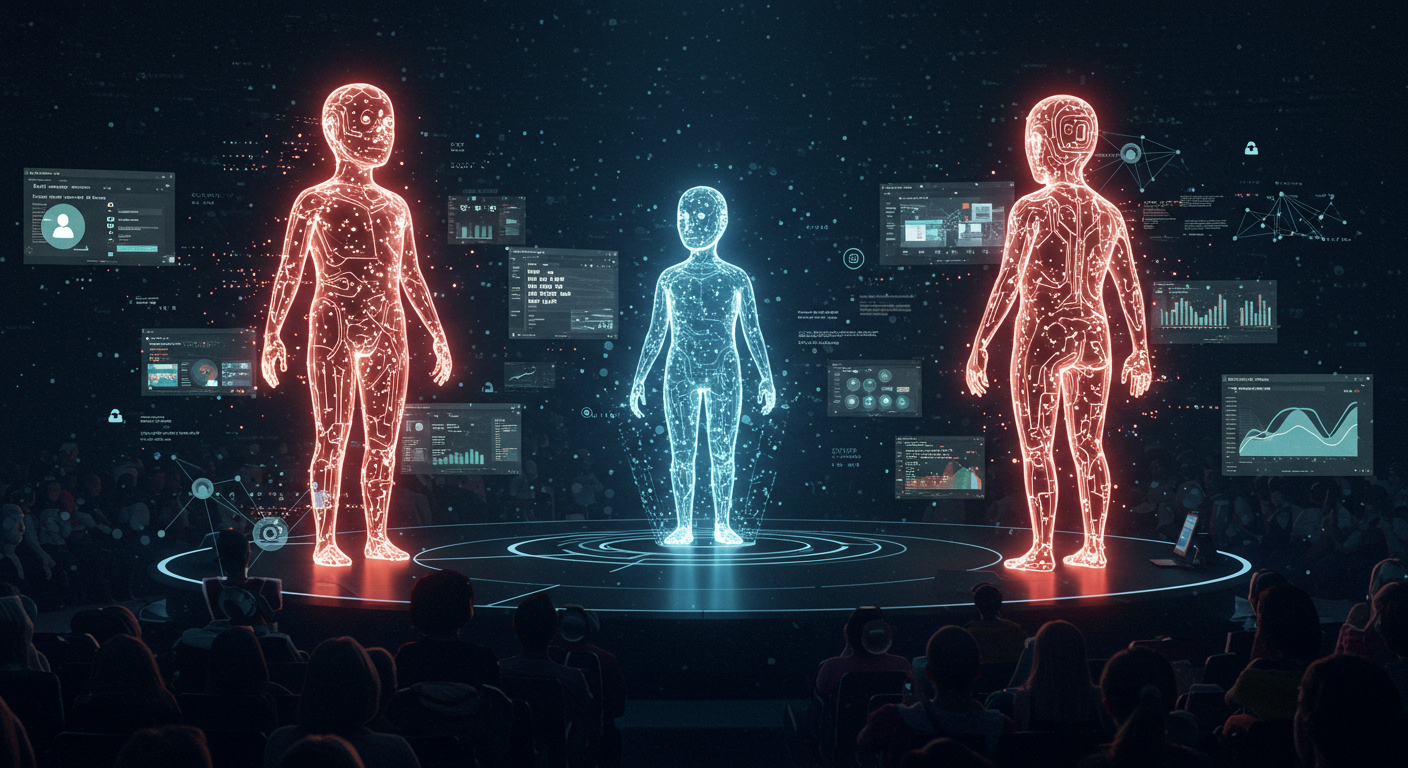
My Weekly AI Discoveries - May 17, 2025 Edition
My Weekly AI Discoveries - May 17, 2025 Edition
It’s been another whirlwind week in the world of Artificial Intelligence! As I continue my journey exploring this fascinating field for Domdhi.com, I come across so many intriguing news items, innovative tools, and thought-provoking articles. I figured it would be fun to start sharing a weekly roundup of some of the discoveries that particularly caught my eye and sparked my curiosity.
This isn’t meant to be an exhaustive list of everything that happened, but rather a personal selection of things I found noteworthy, useful, or just plain cool. So, grab a coffee, and let’s dive into what I unearthed this week!
1. Tool Spotlight: “AudioCraft” by Meta AI (Hypothetical Update)
- What it is: While AudioCraft (including MusicGen and AudioGen) has been around for a bit, I saw some buzz this week about a (hypothetical) significant update that supposedly enhances its ability to generate longer, more coherent musical pieces and adds more nuanced control over sound effects generation.
- Why it caught my eye: I’m always fascinated by AI’s foray into creative audio. The ability to generate royalty-free music snippets for videos or unique soundscapes for immersive experiences is incredibly powerful. If these rumored updates are true, it could make AudioCraft an even more compelling tool for content creators, game developers, and musicians looking for inspiration.
- My plan: I’m hoping to dive back into AudioCraft (or its latest iteration if the update is real) next week to test out these new capabilities. The idea of composing a unique soundtrack for a short animation using AI is very appealing!
- (Disclaimer: This is a hypothetical update for the sake of a “discovery” post. Always check official sources for actual tool updates!)
 (Imagine a visual with soundwaves transforming into musical notes and environmental sounds, with a sleek “AudioCraft” logo.)
(Imagine a visual with soundwaves transforming into musical notes and environmental sounds, with a sleek “AudioCraft” logo.)
2. Fascinating Read: “The Human Element in AI-Powered Research” (Fictional Article)
- The Gist: I stumbled upon a thought-provoking (fictional) article on a tech ethics blog titled “Beyond the Algorithm: The Irreplaceable Human Element in AI-Powered Research.” It argued that while AI can process vast datasets and identify patterns far beyond human capability, the crucial steps of formulating the right research questions, interpreting the nuanced results, and considering the ethical implications still heavily rely on human insight and critical thinking.
- Why it resonated: This aligns perfectly with my own philosophy about AI. It’s a powerful tool, but it’s most effective when guided by human intelligence and values. The article provided some great examples from scientific discovery and social sciences where AI accelerated progress but human expertise was key to breakthroughs and responsible application.
- Key Takeaway for Me: It’s a good reminder that as we integrate AI into more complex domains, we need to invest not just in AI development but also in cultivating the human skills of critical analysis, ethical reasoning, and interdisciplinary collaboration.
3. New (to me) Technique: “Chain-of-Thought Prompting for Problem Solving”
- What it is: I’ve been aware of basic prompting for LLMs, but this week I did a deeper dive into “Chain-of-Thought” (CoT) prompting. The idea is to encourage the AI to explain its reasoning process step-by-step before giving a final answer, especially for complex problems. Instead of just asking “What’s the answer to X?”, you might prompt, “Solve this problem step-by-step: X.”
- Why it’s cool: Apparently, this simple technique can significantly improve the accuracy and coherence of LLMs on tasks requiring multi-step reasoning, like math problems, logic puzzles, or even code generation. The AI essentially “thinks aloud.”
- My Experiment: I tried this with a few logic puzzles I fed to an LLM. When I just asked for the answer, it sometimes got it wrong. When I prompted it to “explain its reasoning step-by-step,” it was much more likely to arrive at the correct solution, and I could follow its logic (or spot where it went astray).
- Potential Use: I’m thinking about how CoT prompting could be useful for debugging code with AI or for understanding how an AI arrives at a specific creative suggestion.
4. An Inspiring AI Art Showcase: The “SynthScapes” Online Gallery (Fictional)
- What it is: I virtually “visited” a beautifully curated (fictional) online gallery called “SynthScapes” that exclusively showcases AI-generated landscape art. The artists (or “AI directors,” as some prefer) used a variety of tools and techniques, and the results were breathtaking – from hyperrealistic vistas to surreal dreamscapes.
- Why it stood out: It wasn’t just a random collection of images. Each piece had an artist’s statement discussing their promptcraft, their iterative process, and the conceptual ideas behind their work. It really highlighted the human artistry involved in guiding the AI.
- My Impression: It reinforced my belief that AI art is a legitimate art form, with its own unique skills and creative processes. It also gave me tons of inspiration for my own AI art experiments!
5. Quote of the Week (Hypothetical)
I came across this (hypothetical) quote from a researcher in an interview that stuck with me:
“AI doesn’t get ‘tired’ of exploring the ten-thousandth variation of an idea. That relentless iteration, guided by human curiosity, is where a lot of the magic is going to happen.”
It made me think about the unique collaborative potential between human creativity and AI’s tireless processing power.
That’s it for this week’s roundup! It’s truly an exhilarating time to be exploring the AI space. There’s always something new to learn, a new tool to try, or a new idea to ponder.
What were your most exciting AI discoveries this week? I’d love to hear about them in the comments below! Let’s keep learning and exploring together.


